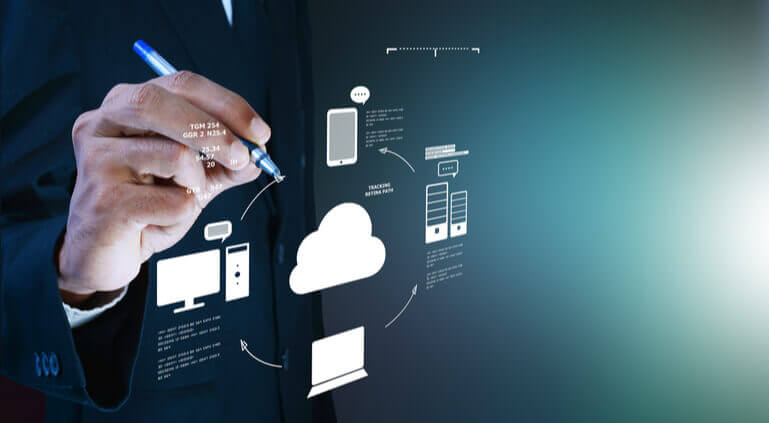
Data is the most valuable property of modern-day companies. The loss of data can result in irreparable damage to your organization, including the loss of revenue, productivity, reputation, and even clients. It is difficult to foresee when a disaster will occur and how severe its impact will be. You can tackle this situation only by successfully recovering from it by using remote managed services. Disaster recovery in ERP cloud computing can be a solution to avoid such disasters. And, it will also help you to save your time and money. Let’s see what is disaster recovery service in cloud computing:
How does disaster recovery work in cloud computing?
Making a disaster recovery plan, testing and updating it, can get your organization ready for an unexpected disaster, and make sure there are safety and continuity for your business. An extensive disaster recovery plan will consider the vulnerabilities, potential threats, infrastructure, vital assets, and their order of recovery, and will focus on practical disaster recovery strategies. A combination of disaster recovery and cloud computing permits you to create a disaster recovery plan and robotize each step of the recovery procedure.
Backup and disaster recovery in cloud computing
Cloud computing is the service that is provided once the client requests over the internet, you have to pay up-front to use the services. The major ones provided by them are as follows:
- Software as a service or SaaS: It is one of the most famous and probably the oldest cloud computing services of all. It assists businesses to approach and to work on specific business software anywhere and at any time. The most approved software programs comprise Enterprise Resource Planning (ERP) and Customer Relationship Management (CRM) programs. Software as a service system assists businesses in easy automation and management.
- ERP Hosting and storage services: These services are gaining huge popularity these days. The businesses that are utilizing these services can save their precious information on remote services and arrays that are offered by the service provider. The information will be secured and you can have backups in real-time. You can even access the data from anywhere and at any time.
- Platform as a service: These services permit you to rent a computing platform from the ERP cloud service provider so that you can perform tasks like testing, configuring, and developing software applications.
- Infrastructure as a service or IaaS: Such a type of service is provided by the service provider to the organizations the entire IT infrastructure by charging every month. Not much investment is required for such services and it can include computers, servers, and storage, networking which might not be installed locally.
How can they help businesses?
There is no initial investment required for any services, and there isn’t any maintenance cost needed in it too. It provides the best accessibility and automation due to the service model, with 24X7 accessibility that too anywhere there is the internet. Better business management that comes with personalized packages that can be modified according to …